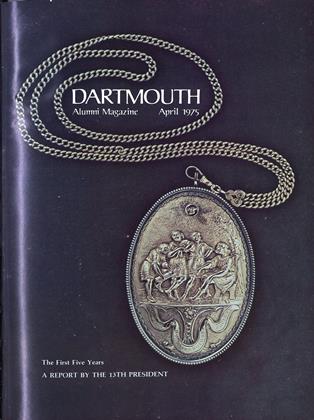The last line reads, "Love is the light of life." An opening quotation leans on Shakespeare: "Alas, how can love trifle with itself." It is Julia speaking to Sylvia disguised as Sebastian in Two Gentlemen of Verona, the play centering on the conflict of love and friendship and contrasting a loyal and a faithless friend. Dr. Viscott illustrates how modern men and women dupe themselves with disguises and torment one another with words and fears. He might also have quoted the famous song in the play, "Who is Sylvia?" which asks whether she is as good-hearted ("kind") as she is beautiful ("fair") because "Beauty lives with kindness."
The Boston psychiatrist knows that love, beauty, and good-heartedness may lie deep in the eye of a beholder, but the eye may squint. And so he attempts to straighten vision in singles, couples, and families. A husband and wife may feel cheated. "To give freely one must feel given to." Privacy is a basic right. "If one has no right to privacy, what joy is there in sharing?" Sometimes a relationship is understood only when it is over. You are not in love if you do not care about the feelings of another person as you do about your own. A man and a woman (husband and wife or lovers) must define needs, wishes, and goals, for insincerity and "going alone" erode the last ties of trust and understanding. Infidelity is acting on the belief that the other person is no longer special to you.
Sexual fidelity? "When a partner demands sexual exclusivity, he must bear the burden of providing sexual fulfillment." Feel a little free to cast a lascivious eye, but a wiser choice is to focus on your loved one. Conflicts? "Try not to argue at bedtime just before you turn the lights off." Goals? "... Ever deepening understanding is the highest goal of living with another person." Friends? "Even if you can't be lovers all the time, you can still be friends." Troubled relationships? "People feel devalued when they feel unloved."
New commitments? Couples should meet privately at least once a week and talk honestly and listen politely. Children? They have rights and so do parents. Breaking up? "Have done with the pain. All of the pain. Do not regret the time you spent together," because a separation an end, is also a beginning.
Dr. Viscott ends by assuring us that the purpose of life is to celebrate life and to make visible the life force. Partners should give each other full freedom to grow and to become their fullest, most creative selves.
Throughout, the Chief Resident at University Hospital Psychiatric Clinic relies on asphorisms so full of horse sense and so close to folk sayings that his 156 pages are a Book-of-the-Month Club Alternate Selection.
HOW TO LIVE WITHANOTHER PERSON. By DavidViscott '59. Arbor House, 1974. 156pp. $5.95.
JOHN HURD'21
-
 Class Notes
Class Notes1921
April 1976 By HAROLD F. BRAMAN, G. HARRY CHAMBERLAINE, JOHN HURD'21 -
 Books
BooksFIRST PERSON: CONVERSATIONS ON WRITERS AND WRITING WITH GLENWAY WESCOTT, JOHN DOS PASSOS, ROBERT PENN WARREN. JOHN UPDIKE. JOHN BARTH, ROBERT COOVER
March 1974 By JOHN HURD'21 -
 Books
BooksMASTER OF THE COURTS.
May 1974 By JOHN HURD'21 -
 Books
BooksALFRED LORD TENNYSON: IN MEMORIAM. AN AUTHORITATIVE TEXT, BACKGROUND AND SOURCES, CRITICISM.
May 1974 By JOHN HURD'21 -
 Books
BooksMetals and Living Flesh
March 1976 By JOHN HURD'21 -
 Books
BooksFields of Grace
September 1976 By JOHN HURD'21
JOHN HURD'21
-
 Class Notes
Class Notes1921
April 1976 By HAROLD F. BRAMAN, G. HARRY CHAMBERLAINE, JOHN HURD'21 -
 Books
BooksFIRST PERSON: CONVERSATIONS ON WRITERS AND WRITING WITH GLENWAY WESCOTT, JOHN DOS PASSOS, ROBERT PENN WARREN. JOHN UPDIKE. JOHN BARTH, ROBERT COOVER
March 1974 By JOHN HURD'21 -
 Books
BooksMASTER OF THE COURTS.
May 1974 By JOHN HURD'21














